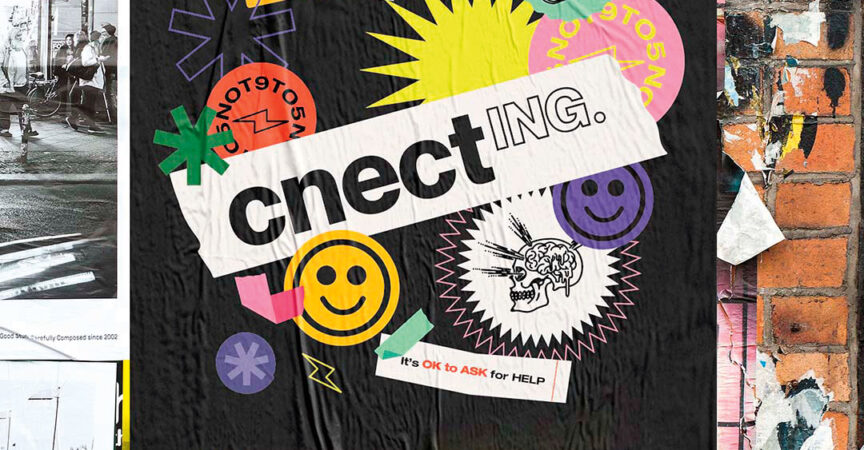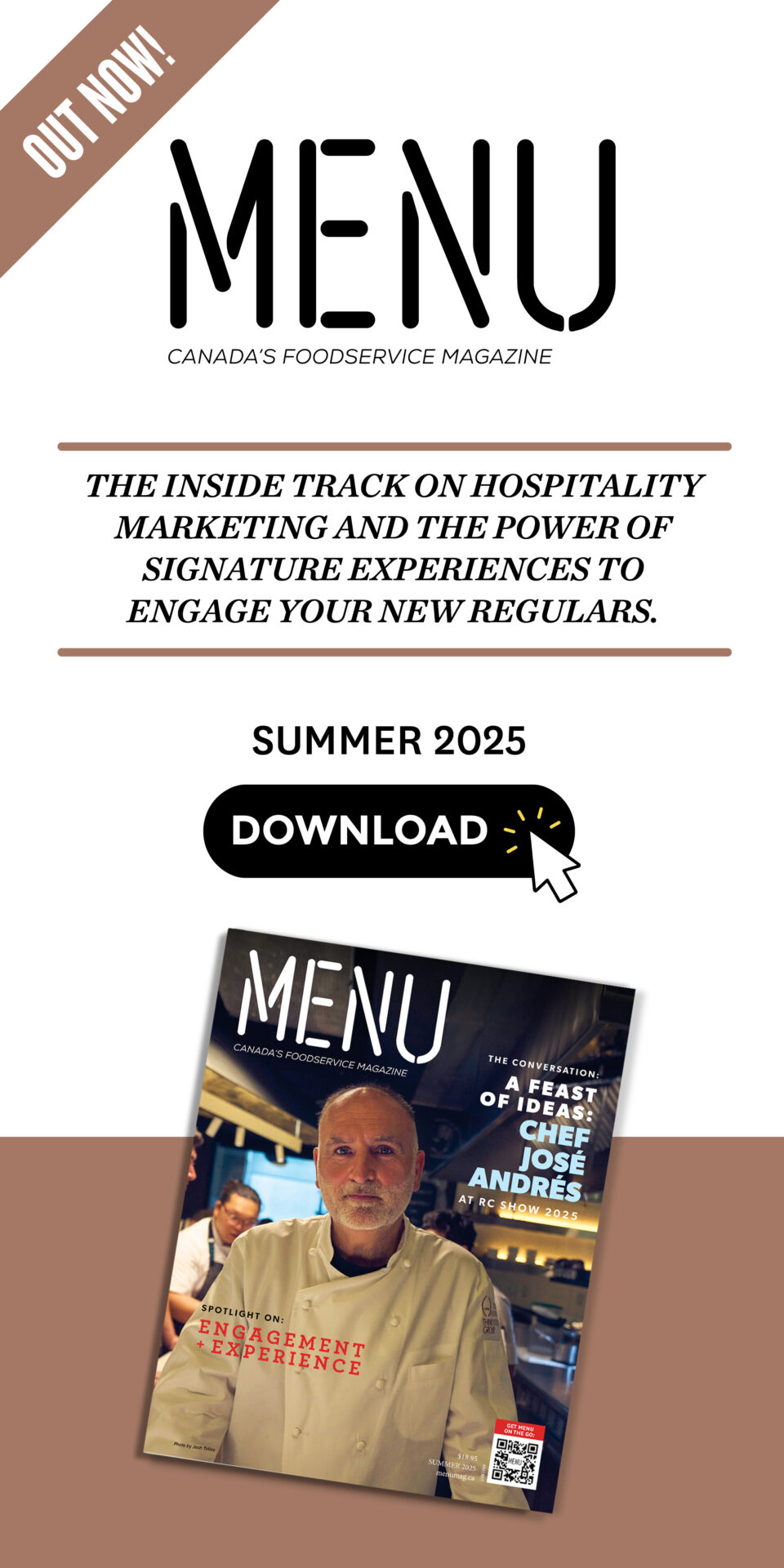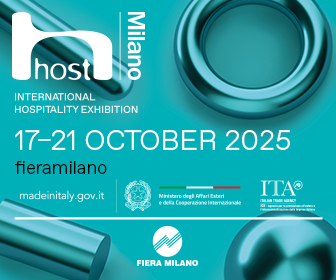Support the restaurant industry by addressing workplace mental health.
BY HASSEL AVILES,
EXECUTIVE DIRECTOR, NOT 9 TO 5

A career-long veteran of Toronto’s hospitality industry, Hassel Aviles has two decades of lived experience with both the dividends and demands of restaurant culture. From front-of-house and behind-the-bar roles, she went on to helm many large catering, culinary and food events in Toronto. Instead of celebrating her success, Hassel found herself feeling anxious, exhausted and undervalued.
Looking inward at her own mental wellness inspired her to co-found Not 9 to 5, a non-profit advocacy organization that provides resources and safe space communities to support workplace mental health and substance use education for the industry and people she cares for and believes in. Not 9 to 5’s online education platform, CNECTing, has expanded and democratized the organization’s resources to help promote the creation of positive, proactive and inclusive hospitality work environments worldwide.
In this edition of The Column, Hassel reminds operators of the importance of helping and listening to their staff through the sometimes difficult holiday period and beyond, and offers the supports and resources to do it.
I’m often asked if I could rebuild restaurants what would I do differently?
Based on the research and data I have been reviewing and collecting over the last three years, the one actionable step I recommend is mandatory training for psychological safety. This article will explore the need for and impact of prioritizing workplace mental health in the hospitality industry.
After working in every frontline service job out there, owning a restaurant for a few years, and consulting on many others, I know first-hand the impact this would have. We need to learn how to prioritize psychological safety and mandate mental health education to leaders, owners, managers and anyone else who makes business decisions that impact the workplace. Why? Because it helps to protect and unlock the potential of the biggest asset of the hospitality and culinary industry: the people. We have to remember we are not in the business of culinary and beverage products; we are in the business of people who happen to serve food and drinks. The traditional restaurant business model is antiquated. It has been neglecting workplace mental health for centuries and, as a result, often creates toxic work environments. Restaurants continue to hemorrhage money to turnover costs and experience labour challenges with many achieving only low, single-digit profit margins. This is all interconnected, and one truth impacts the other.
We have to remember we are not in the business of culinary and beverage products; we are in the business of people who happen to serve food and drinks.”
Like many fellow restaurant workers and owners I worked with during my fifteen years working in service, I have lived with mental illness in the form of depression, social anxiety and trauma. If I ever mentioned this about myself at work, I was told to check my emotions at the door—as if it’s possible to separate myself from my humanity. Instead of open dialogue, support and resources for workplace mental health, there was stigma and shame. This made my career in hospitality a lonely experience. Even though I was constantly surrounded by vast amounts of people and most of my colleagues were also struggling, no one addressed it openly or directly in the workplace. In early 2018, I chose to challenge the status quo and make a career change, intersecting my foodservice background with my lived mental health experience. I co-founded a non-profit called Not 9 to 5. The work we do was founded on instinct and is now cemented in data. Our humble beginning as a local, grassroots initiative quickly grew our organization into a global leader in mental health advocacy and education for the hospitality sector with partners in the U.S., U.K. and beyond. In addition to community support, we’ve received almost half a million dollars in Canadian federal funding that has allowed us to collect research and data that informs mental health resources, tools and support for the foodservice sector.
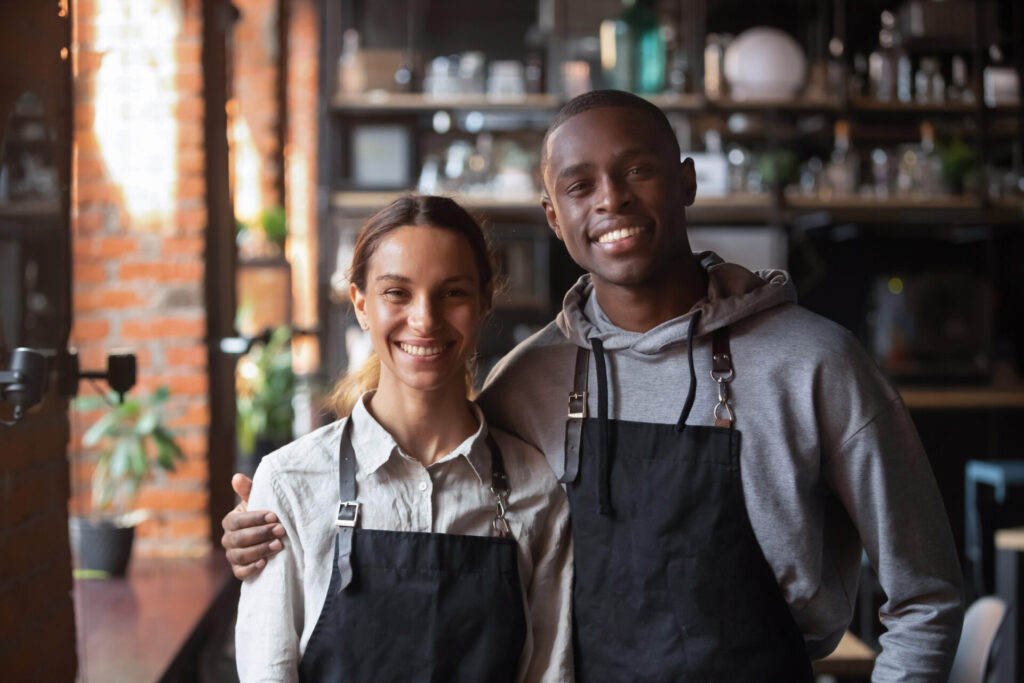
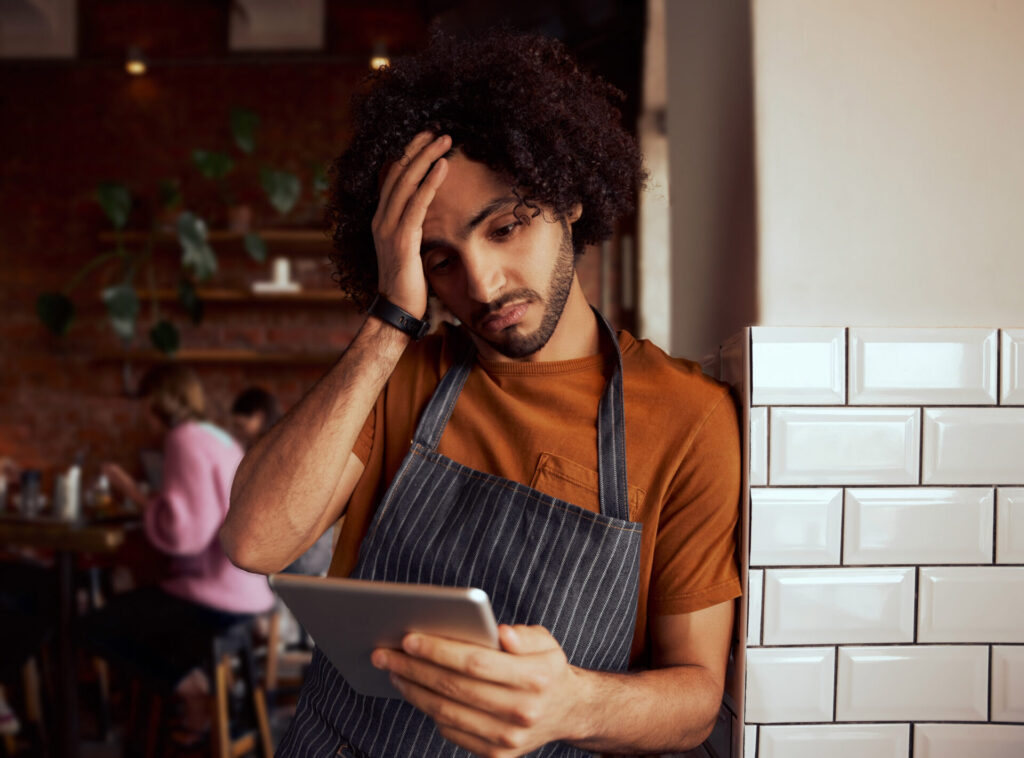
As the executive director of Not 9 to 5, I primarily focus on practical education about psychological safety. This workplace term was coined by Harvard University organizational behaviour scientist Amy Edmondson, and my preferred definition for psychological safety is: “an environment where people feel it is safe to show up as their authentic self, makemistakes, be vulnerable with each other, give and receive feedback and take risks without any fear of negative consequences to how they’ll be perceived or for their job itself”. This goes against the widely accepted brigade system mentality of sacrificing yourself in the name of efficiency. It demands we abolish the outdated and inefficient idea that vulnerability is a weakness and stop demanding staff suppress any and all emotional experiences. Toxic work culture creates shame and stigma around mental health and substance use challenges, this in turn prevents folks from seeking and accepting help when needed.
Although low wages definitely need to be addressed industry- wide, a toxic work environment and culture is ten times more powerful than compensation in predicting a company’s attrition rate and employee turnover.
Many folks claim that the biggest issue in restaurants is inadequate pay. Although low wages definitely need to be addressed industry-wide, a toxic work environment and culture is ten times more powerful than compensation in predicting a company’s attrition rate and employee turnover.1 On the opposite extreme, psychological safety has many benefits. Just to name a few: it increases employee retention, creativity, collaboration, innovation and a hefty return on investment for every dollar invested. Every dollar spent on workplace mental health and support for your team is an investment in your business, not an expense. Studies show that employers supporting workplace mental health see a return of $4 for every $1 invested2. Creating a psychologically safe work environment is the gift that keeps on giving. Not only does it help manage labour issues, workplace culture and employee engagement according to Google, one of the world’s largest employers, but it is also the most important factor for high-performance, productivity and effectiveness.
Since restaurants have been neglecting workplace mental health for centuries, our industry lacks the language, education or training to create psychological safety. The impact is that we end up with toxic workplaces where repression and suppression of any emotion other than anger becomes status quo. This unfortunately becomes a pressure cooker of fear and shame. There is also a complicated history that shows us racism, sexism and ableism present in the foundation and history in the hospitality industry. This has led to white supremacy culture, sexual harassment and abuse becoming normalized in restaurants and bars. It is no mystery that the pandemic led to ‘the great resignation’ and major labour retention issues. High turnover costs in restaurants show us that it costs a business more to neglect these issues than it does to address them. Hospitality and culinary professionals are in dire need of workplace support, resources and training. At the end of the day, everyone has mental health and no one is unaffected by the last few years, as there has never been a more important time to focus on psychological safety.
Since the pandemic, we’ve entered a new era in reimagining and rebuilding the restaurant and hospitality industry. One of the reasons is because our sector is one of the hardest hit. Frontline workers in retail, accommodation and restaurants are among the lowest paid across all industries and most have no remote work options. Many hospitality workers are from marginalized groups, including racialized communities, immigrants, genders that are not men and youth, who are disproportionately impacted3. The great resignation is not about a labour shortage. It is a reflection of the shortage of workplaces that offer adequate compensation, support, physical and psychological safety, resources and training. Employees now have different perspectives, more options and new opportunities available to them so leaving an industry that is harmful has become an easier choice. Gaining mental health education and language for understanding emotional experiences helps people learn new ways to navigate and cope. It helps to shed judgment and replace it with support skills by adopting more appropriate vocabulary and learning how to identify common symptoms. With support skills, we begin to understand how to help people feel less alone in a time of need. It is important to acknowledge that we can offer support for mental health just like we do with first aid and physical health. When someone cuts their hand, as a manager you are not expected to stitch that person up. Instead, with their consent, you connect them with a more appropriate medical professional. It can be the same for mental health. When someone is struggling or seeking support, we can practice active listening skills and offer to refer them to a professional or other support of their choice.

As the holidays approach, the restaurant industry enters one of the busiest and high- stress times of the year. Many guests consider it a wonderful season, but for most industry professionals it is an especially difficult and lonely few months.”
As the holidays approach, the restaurant industry enters one of the busiest and high-stress times of the year. Many guests consider it a wonderful season, but for most industry professionals it is an especially difficult and lonely few months. Whether it’s feeling drained from the financial stress, experiencing loneliness from personal loss or missing family in a time when everyone comes together, the holidays can really put a strain on mental health. The quickest way to build psychological safety for team members is to support each other through hard times. We must be able to talk about difficult, messy or sad topics, and have tough conversations with colleagues—even if these interactions can be challenging. We can’t be focused solely on efficiency. The WHO essentially defines burnout as a workplace or occupational phenomenon resulting from chronic workplace stress4. This means that employers play a role in employee burnout management and, more importantly, prevention. The way organizations support their team during periods of trauma is powerful. The holiday season is intense and many of us are still reeling from the impact of the pandemic and the last few years. When we are in crisis, many of us look to our workplace to support and protect us. If this doesn’t happen, or if they harm us or those we care about, this creates a second injury. This is called institutional betrayal, a term coined by psychologist Jennifer Freyd, who describes it as “occurring when an institution you trust or depend upon mistreats you5”. On the opposite extreme, we can practise psychological safety and create a work environment where people feel supported, seen, heard and held.
As we close out the year, I am here to remind you that there is help available for embarking on change in the hospitality industry. If you or anyone in your company is in need of mental health resources, or ready to address psychological safety in restaurants and beyond, visit www.not9to5.org to learn more. We’ve created an online education platform called CNECTing that is free to join. Once there, you can download our workplace mental health guidebook, access industry data and resource lists or invest in ground-breaking certification courses. These can all help you develop your support skills as well as gain tools to identify, understand and respond to mental health and substance use challenges for yourself and others.
After seeing so much change in the last two years, I have never felt more hopeful that the past does not define the future of restaurants. We are in an era of expanding our understanding of what we have known the industry to be and have increased access to concrete evidence of the power of psychological safety in the workplace. Other industries have been implementing these vital changes in the workplace; it’s now time for restaurants to join.
Those do not engage with the data or adapt will get left behind.


Not 9 to 5 is a non-profit global leader in mental health advocacy for the foodservice and hospitality sector, reimagining the industry by breaking stigmas and fuelling hope through practical education and meaningful community-building. Their vision is physical and psychological safety for the entire hospitality and culinary workforce, aspiring to normalize mental health training, sick leave, workplace accommodations, healthcare benefits, support and resources to all. www.not9to5.org

Not 9 to 5 created CNECTing for hospitality professionals to access educational content and mental health training. Join CNECTing to access industry-specific resources including CNECTed, a groundbreaking training and certification course to develop mental health and substance use support skills. Join CNECTing + get CNECTed certified. www.not9to5.org/cnecting/
References
1.
Donald Sull, Charles Sull, Ben Zweig, “Toxic Culture is Driving The Great Resignation”, MIT Sloan Management Review, January 11, 2022, online editorial: https://sloanreview.mit.edu/article/toxic-culture-is-driving-the-great-resignation/
2.
National Safety Council, “New Mental Health Cost Calculator Shows Why Investing in Mental Health is Good for Business”, National Safety Council website, May 13, 2021, online editorial: https://www.nsc.org/newsroom/new-mental-health-cost-calculator-demonstrates-why
3.
Michael Burt, “Most vulnerable to be hardest hit by the COVID-19 economic downturn”, The Conference Board of Canada, March 23, 2020, online editorial: https://www.conferenceboard.ca/insights/blogs/most-vulnerable-to-be-hardest-hit-by-the-covid-19-economic-downturn
4.
World Health Organization (WHO) departmental news, “Burn-out an “occupational phenomenon”: International Classification of Diseases”, May 28, 2019, online news article: https://www.who.int/news/item/28-05-2019-burn-out-an-occupational-phenomenon-international-classification-of-diseases
5.
Katharine Manning, “We Need Trauma-Informed Workplaces”, Harvard Business Review, March 31, 2022, online editorial:
https://hbr.org/2022/03/we-need-trauma-informed-workplaces



